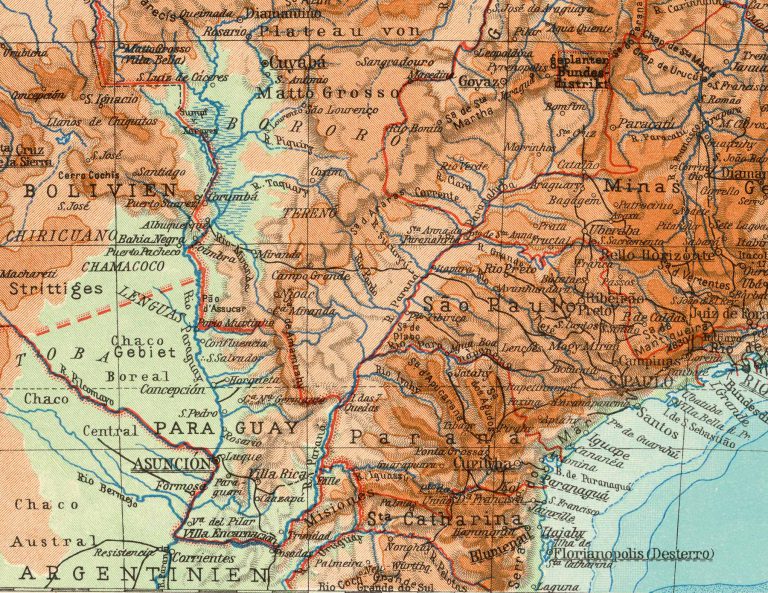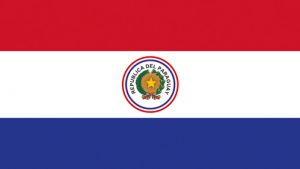
Paraguay
Policy on Immigration and Refugees
Like its neighbors Uruguay and Argentina, Paraguay is a traditional destination for emigrants from Europe. The country’s Jewish community, however, remains very small because of discriminatory immigration rules, and is concentrated in the capital city, Asunción. Nonetheless, there is antisemitism in Paraguay, and it is imported primarily from the German Reich. Bernhard Förster and his wife Elisabeth, who is Friedrich Nietzsche’s sister, attempt to found an “Aryan colony” called Nueva Germania beginning in 1886. This project is, however, a failure.
In the 1930s, Paraguay undergoes political upheaval. From 1932 to 1935, the country wages the Chaco War against it neighbor, Bolivia. As a consequence of the war, Paraguay’s national territory is expanded by around half. Following a military coup against the ruling liberal party, the “Febreristas” take power for 18 months starting in February 1936. Although ideologically heterogeneous, the instigators of the coup are mostly illiberal, nationalist and antisemitic in their views. The new dictator, Rafael Franco, harbors sympathy for European fascism, especially for Hitler.
In 1937, immigration requirements are tightened: The Paraguayan consulates in Europe are instructed to stop issuing visas for “displaced persons from other countries.” This measure is clearly directed against European Jews, as it also states that Paraguay only needs “productive” immigrants – that is, those who work in agriculture. As in other Latin American countries, this ostensible argument serves to keep Jewish immigrants out of the country. In 1939, the army, church and parliament join together to fight against the realization of a project of the Jewish aid organization HICEM, which wants to establish agricultural colonies for refugees in Paraguay.
Debates in the Paraguayan parliament about a purported “semitic invasion” also make clear that antisemitism is widespread in the country. In total, about 1,000 Jewish immigrants settle permanently in Paraguay. Some Paraguayan consuls, however, sell thousands of visas to refugees who migrate onward to Brazil, Argentina or Uruguay.
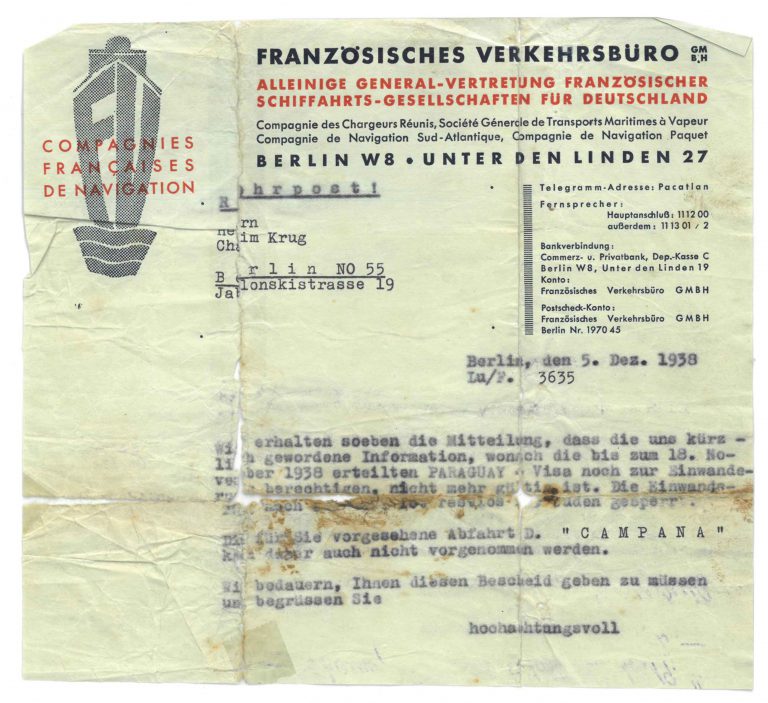
Pneumatic post from the General Agency of French Shipping Companies for Germany to Chaim Krug, December 5, 1938
In this letter, the agency explains that visas that already have been issued for Paraguay are no longer valid. For this reason, according to the letter, the expected departure of the steamship Campana has also been cancelled.
Sammlung Wolfgang Haney, Berlin
Pneumatic post from the General Agency of French Shipping Companies for Germany to Chaim Krug, December 5, 1938
In this letter, the agency explains that visas that already have been issued for Paraguay are no longer valid. For this reason, according to the letter, the expected departure of the steamship Campana has also been cancelled.
Sammlung Wolfgang Haney, Berlin
Delegation
Gustavo Adolfo Wiengreen-Leuenroth
* 30 October 1868 Hamburg † 1942 unknown
Wiengreen is born in Hamburg as the scion of a long-established merchant family. The family later emigrates to Argentina, where he marries Catherina P.R. Tietjen-Becker from Rosaria, a diplomat’s daughter who is likewise of German heritage. In the 1930s, Wiengreen becomes Paraguay’s ambassador to Austria.
In spring 1937, his daughter Ingrid is shot dead in her car in Vienna during an attack by four young men. The case attracts considerable attention in the Austrian press.
Alongside his diplomatic career, Wiengreen runs a livestock business in the small Paraguayan town of San Bernardino, where he and his wife also are engaged on behalf of the German-speaking community.
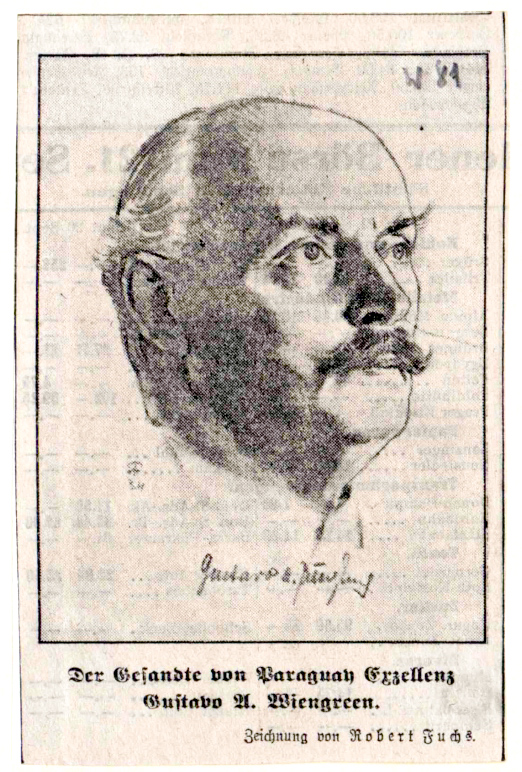
“The Paraguayan Envoy, His Excellency Gustavo A. Wiengreen,” drawing by Robert Fuchs, 1934
Drawing: Robert Fuchs/ Österreichische Nationalbibliothek, Wien, PORT_00021167_01
“The Paraguayan Envoy, His Excellency Gustavo A. Wiengreen,” drawing by Robert Fuchs, 1934
Drawing: Robert Fuchs/ Österreichische Nationalbibliothek, Wien, PORT_00021167_01
Conference Contributions
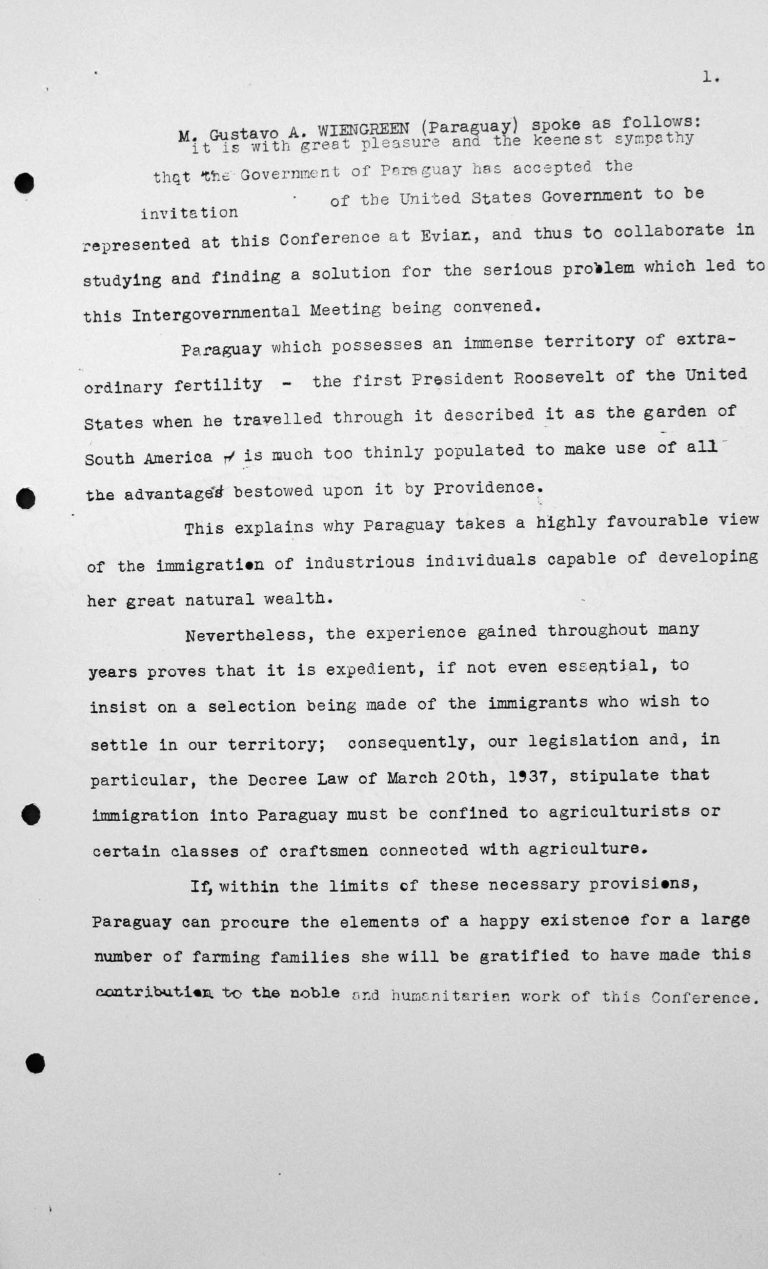
Speech by Gustavo Wiengreen (Paraguay) in the public session on July 11, 1938, 11am
Franklin D. Roosevelt Library, Hyde Park, NY
Speech by Gustavo Wiengreen (Paraguay) in the public session on July 11, 1938, 11am
Franklin D. Roosevelt Library, Hyde Park, NY
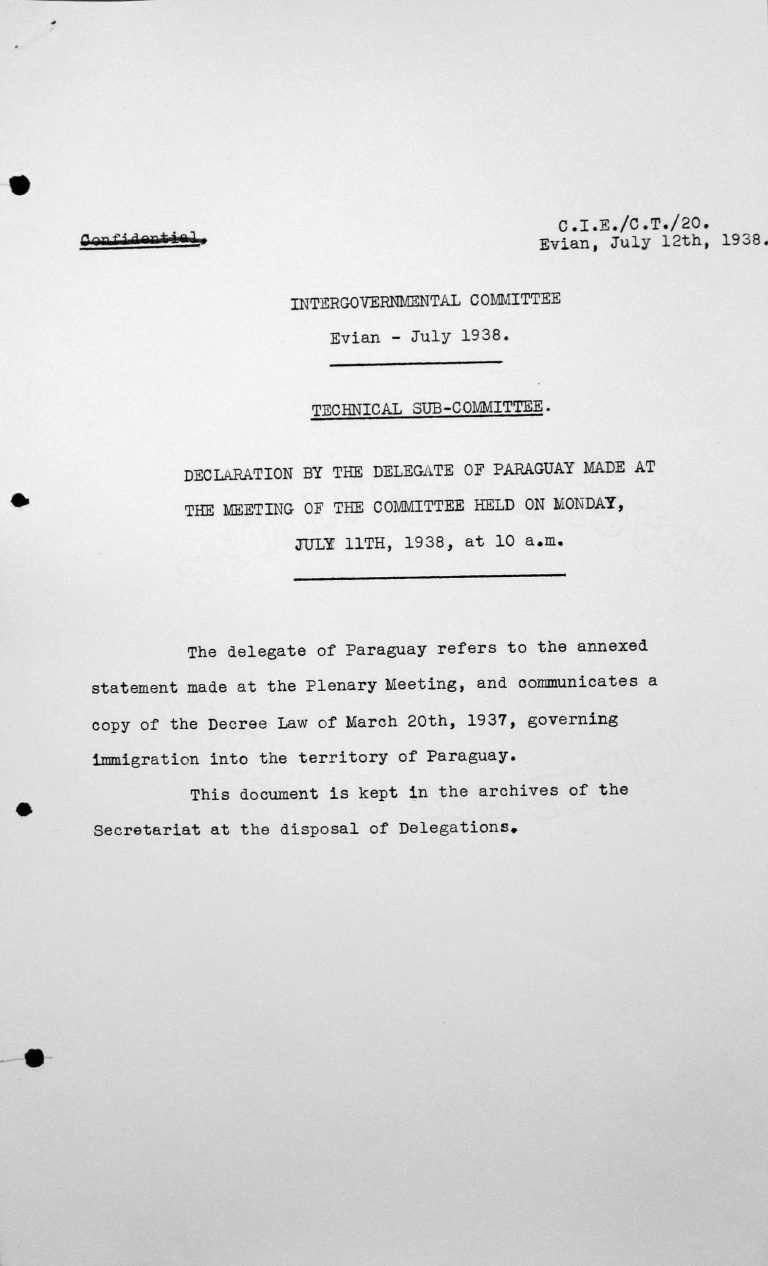
Declaration by the delegate of Paraguay made at the meeting of the Committee held on Monday, July 11th, 1938, at 10 a. m.
Franklin D. Roosevelt Library, Hyde Park, NY
Declaration by the delegate of Paraguay made at the meeting of the Committee held on Monday, July 11th, 1938, at 10 a. m.
Franklin D. Roosevelt Library, Hyde Park, NY
